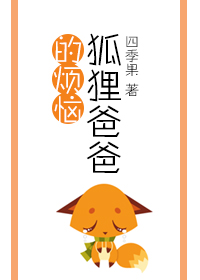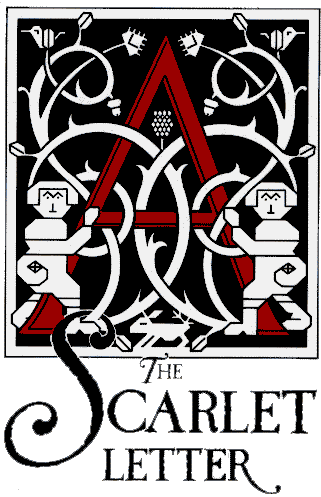四季随笔-the private papers of henry ryecroft(英文版)-第21部分
按键盘上方向键 ← 或 → 可快速上下翻页,按键盘上的 Enter 键可回到本书目录页,按键盘上方向键 ↑ 可回到本页顶部!
————未阅读完?加入书签已便下次继续阅读!
with a sort of disgust。 〃An ounce of civet; good apothecary!〃 Why it should be so with me I cannot say。 I am as indifferent to the facts or fancies of spiritualism as I am; for instance; to the latest mechanical application of electricity。 Edisons and Marconis may thrill the world with astounding novelties; they astound me; as every one else; but straightway I forget my astonishment; and am in every respect the man I was before。 The thing has simply no concern for me; and I care not a volt if to…morrow the proclaimed discovery be proved a journalist's mistake or invention。
Am I; then; a hidebound materialist? If I know myself; hardly that。 Once; in conversation with G。 A。; I referred to his position as that of the agnostic。 He corrected me。 〃The agnostic grants that there MAY be something beyond the sphere of man's knowledge; I can make no such admission。 For me; what is called the unknowable is simply the non…existent。 We see what is; and we see all。〃 Now this gave me a sort of shock; it seemed incredible to me that a man of so much intelligence could hold such a view。 So far am I from feeling satisfied with any explanation; scientific or other; of myself and of the world about me; that not a day goes by but I fall a… marvelling before the mystery of the universe。 To trumpet the triumphs of human knowledge seems to me worse than childishness; now; as of old; we know but one thing……that we know nothing。 What! Can I pluck the flower by the wayside; and; as I gaze at it; feel that; if I knew all the teachings of histology; morphology; and so on; with regard to it; I should have exhausted its meanings? What is all this but words; words; words? Interesting; yes; as observation; but; the more interesting; so much the more provocative of wonder and of hopeless questioning。 One may gaze and think till the brain whirls……till the little blossom in one's hand bees as overwhelming a miracle as the very sun in heaven。 Nothing to be known? The flower simply a flower; and there an end on't? The man simply a product of evolutionary law; his senses and his intellect merely availing him to take account of the natural mechanism of which he forms a part? I find it very hard to believe that this is the conviction of any human mind。 Rather I would think that despair at an insoluble problem; and perhaps impatience with those who pretend to solve it; bring about a resolute disregard of everything beyond the physical fact; and so at length a self…deception which seems obtuseness。
X
It may well be that what we call the unknowable will be for ever the unknown。 In that thought is there not a pathos beyond words? It may be that the human race will live and pass away; all mankind; from him who in the world's dawn first shaped to his fearful mind an image of the Lord of Life; to him who; in the dusking twilight of the last age; shall crouch before a deity of stone or wood; and never one of that long lineage have learnt the wherefore of his being。 The prophets; the martyrs; their noble anguish vain and meaningless; the wise whose thought strove to eternity; and was but an idle dream; the pure in heart whose life was a vision of the living God; the suffering and the mourners whose solace was in a world to e; the victims of injustice who cried to the Judge Supreme……all gone down into silence; and the globe that bare them circling dead and cold through soundless space。 The most tragic aspect of such a tragedy is that it is not unthinkable。 The soul revolts; but dare not see in this revolt the assurance of its higher destiny。 Viewing our life thus; is it not easier to believe that the tragedy is played with no spectator? And of a truth; of a truth; what spectator can there be? The day may e when; to all who live; the Name of Names will be but an empty symbol; rejected by reason and by faith。 Yet the tragedy will be played on。
It is not; I say; unthinkable; but that is not the same thing as to declare that life has no meaning beyond the sense it bears to human intelligence。 The intelligence itself rejects such a supposition; in my case; with impatience and scorn。 No theory of the world which ever came to my knowledge is to me for one moment acceptable; the possibility of an explanation which would set my mind at rest is to me inconceivable; no whit the less am I convinced that there is a Reason of the All; one which transcends my understanding; one no glimmer of which will ever touch my apprehension; a Reason which must imply a creative power; and therefore; even whilst a necessity of my thought; is by the same criticized into nothing。 A like antinomy with that which affects our conception of the infinite in time and space。 Whether the rational processes have reached their final development; who shall say? Perhaps what seem to us the impassable limits of thought are but the conditions of a yet early stage in the history of man。 Those who make them a proof of a 〃future state〃 must necessarily suppose gradations in that futurity; does the savage; scarce risen above the brute; enter upon the same 〃new life〃 as the man of highest civilization? Such gropings of the mind certify our ignorance; the strange thing is that they can be held by any one to demonstrate that our ignorance is final knowledge。
XI
Yet that; perhaps; will be the mind of ing man; if not the final attainment of his intellectual progress; at all events a long period of self…satisfaction; assumed as finality。 We talk of the 〃ever aspiring soul〃; we take for granted that if one religion passes away; another must arise。 But what if man presently find himself without spiritual needs? Such modification of his being cannot be deemed impossible; many signs of our life to…day seem to point towards it。 If the habits of thought favoured by physical science do but sink deep enough; and no vast calamity e to check mankind in its advance to material contentment; the age of true positivism may arise。 Then it will be the mon privilege; 〃rerum cognoscere causas〃; the word supernatural will have no sense; superstition will be a dimly understood trait of the early race; and where now we perceive an appalling Mystery; everything will be lucid and serene as a geometric demonstration。 Such an epoch of Reason might be the happiest the world could know。 Indeed; it would either be that; or it would never e about at all。 For suffering and sorrow are the great Doctors of Metaphysic; and; remembering this; one cannot count very surely upon the rationalist millennium。
XII
The free man; says Spinoza; thinks of nothing less often than of death。 Free; in his sense of the word; I may not call myself。 I think of death very often; the thought; indeed; is ever in the background of my mind; yet free in another sense I assuredly am; for death inspires me with no fear。 There was a time when I dreaded it; but that; merely because it meant disaster to others who depended upon my labour; the cessation of being has never in itself had power to afflict me。 Pain I cannot well endure; and I do indeed think with apprehension of being subjected to the trial of long deathbed torments。 It is a sorry thing that the man who has fronted destiny with something of manly calm throughout a life of stress and of striving; may; when he nears the end; be dishonoured by a weakness which is mere disease。 But happily I am not often troubled by that dark anticipation。
I always turn out of my way to walk through a country churchyard; these rural resting…places are as attractive to me as a town cemetery is repugnant。 I read the names upon the stones; and find a deep solace in thinking that for all these the fret and the fear of life are over。 There es to me no touch of sadness; whether it be a little child or an aged man; I have the same sense of happy acplishment; the end having e; and with it the eternal peace; what matter if it came late or soon? There is no such gratulation as Hic jacet。 There is no such dignity as that of death。 In the path trodden by the noblest of mankind these have followed; that which of all who live is the utmost thing demanded; these have achieved。 I cannot sorrow for them; but the thought of their vanished life moves me to a brotherly tenderness。 The dead; amid this leafy silence; seem to whisper encouragement to him whose fate yet lingers: As we are; so shalt thou be; and behold our quiet!
XIII
Many a time; when life went hard with me; I have betaken myself to the Stoics; and not all in vain。 Marcus Aurelius has often been one of my bedside books; I have read him in the night watches; when I could not sleep for misery; and when assuredly I could have read nothing else。 He did not remove my burden; his proofs of the vanity of earthly troubles availed me nothing; but there was a soothing harmony in his thought which partly lulled my mind; and the mere wish that I could find strength to emulate that high example (though I knew that I never should) was in itself a safeguard against the baser impulses of wretchedness。 I read him still; but with no turbid emotion; thinking rather of the man than of the philosophy; and holding his image dear in my heart of hearts。
Of course the intellectual assumption which makes his system untenable by the thinker of our time is: that we possess a knowledge of the absolute。 Noble is the belief that by exercise of his reason a man may enter into munion with that Rational Essence which is the soul of the world; but precisely because of our inability to find within ourselves any such sure and certain guidance do we of to…day accept the barren doom of scepticism。 Otherwise; the Stoic's sense of man's subordination in the universal scheme; and of the all…ruling destiny; brings him into touch with our own philosophical views; and his doctrine concerning the 〃sociable〃 nature of man; of the reciprocal obligations which exist between all who live; are entirely congenial to the better spirit of our day。 His fatalism is not mere resignation; one has not only to accept one's lot; whatever it is; as inevitable; but to accept it with joy; with praises。 Why are we here? For the same reason that has brought about the existence of a horse; or of a vine; to play the part allotted to us by Nature。 As it is within our power to understand the order of things; so are we capable of guiding ourselves in accordance therewith; the will

![四季倾城[高干]封面](http://www.baxi2.com/cover/17/17408.jpg)

![影帝在上[娱乐圈] 作者:四季之夏封面](http://www.baxi2.com/cover/21/21601.jpg)
![[士兵突击高袁]四季歌封面](http://www.baxi2.com/cover/22/22408.jpg)

![(士兵突击同人)[士兵突击高袁]四季歌封面](http://www.baxi2.com/cover/23/23509.jpg)
